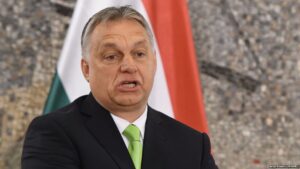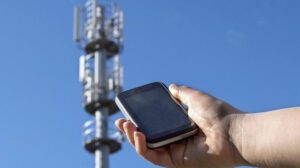
Ukrainian banking institutions for the period from mid-March to April 5 issued loans to farmers as part of the state program to support the sowing campaign in the context of the Russian military invasion of Ukraine for a total of UAH 1.79 billion, according to the website of the Ministry of Agrarian Policy and Food of Ukraine on Wednesday.
At the same time, it is specified that currently 80% (UAH 1.5 billion) of the provided borrowed funds were portfolio guarantees, and 900 agricultural producers from different regions of the country received access to financing.
Most of all loans for the specified period were attracted by farmers of Kirovohrad region – UAH 405 million (22% of the total), Vinnitsa region – UAH 365 million (20.4%), Dnepropetrovsk region – UAH 267 million (14.9%), Odessa region – UAH 161 million (9%) and Lviv – UAH 159 million (8%) regions.
According to the Ministry of Agrarian Policy, loans up to UAH 60 million under this program are issued at 0% per annum (under the state financial support program “Affordable loans 5-7-9%”). The term of such lending is up to 6 months, and after its completion, the interest rate for borrowers will be 5% per annum. Agrarians falling under the definition of an agricultural producer can use the loan.
“Lending to farmers is one of the main priorities of banks. The conditions for granting loans are simplified as much as possible. Moreover, banks lend to our farmers even in those regions where there are battles, because they need to sow, and (…) people go out to their fields,” the ministry quotes its head of Nikolai Solsky.
The agency clarified that the government program to support the sowing campaign is being implemented by the Cabinet of Ministers, the Ministry of Agrarian Policy, the Ministry of Finance, the Ministry of Economy, the National Bank and the banking sector.
As reported, at the end of March, the Cabinet of Ministers of Ukraine expanded the procedure for issuing guarantees for agricultural producers on loans on a portfolio basis for the purchase of the resources they need for the sowing campaign in 2022, since due to the Russian military invasion of Ukraine, part of the farmers lost working capital for carrying out spring work.
Thus, within the framework of portfolio lending to agricultural producers, they will be able to obtain loans for the purchase of fertilizers, plant protection products, pesticides and agrochemicals, fuel, spare parts for agricultural equipment, as well as for replenishment of fixed assets and intangible assets, wages, rent of real estate and movable property, works and services for its operations.
The total budget of this program to support the 2022 sowing season is UAH 50 billion.

The construction of bomb shelters in new housing can be regulated at the legislative level, said Elena Shulyak, leader of the Servant of the People party.
“Will there be new buildings with bomb shelters? We plan to resolve this issue at the legislative level, with prescribed norms and rules. I’m sure this should become one of the requirements of users of such housing and premises,” the people’s deputy wrote on Facebook.
According to Shulyak, the role of bomb shelters can also be performed by specially designed fortified underground parking lots.
The People’s Deputy recalled that the Verkhovna Rada adopted in the first reading bill No. 7198, which provides for the restoration of housing destroyed by the occupiers at the expense of the state.
As reported, President of Ukraine Volodymyr Zelensky supported the idea of introducing a rule on mandatory shelters into state building codes.

The volume of public debt of all countries of the world in 2022 will increase by 9.5% and reach a record high of $71.6 trillion, according to the Sovereign Debt Index study by the British management company Janus Henderson.
In 2021, global public debt rose by 7.8% to $65.4 trillion, with an increase in borrowing observed in all countries covered in the study.
In the meantime, the total cost of servicing the debt has fallen to $1.01 trillion, that is, the actual rate was only 1.6%, according to CNBC research.
In 2022, global public debt service spending is expected to jump 14.5% to $1.16 trillion.
Analysts Janus Henderson believe that the UK will face higher borrowing costs than other countries due to higher interest rates of the Bank of England and a significant amount of government debt with floating rates tied to inflation. Domestic consumer prices jumped 6.2% year-on-year in February, the fastest pace since March 1992.
European countries will also actively place government bonds due to the need to sharply increase government spending on defense in light of the military events in Ukraine, said Bethany Payne, portfolio manager at the company.

Hungarian Prime Minister Viktor Orban, in a telephone conversation with Russian President Vladimir Putin on Wednesday, suggested that he hold talks in Budapest with his Ukrainian counterpart Vladimir Zelensky, European media reported.
“The answer was yes, but the Russian president says he has certain conditions,” Orban was quoted as saying by the media.
According to them, Orban said that he also invited French President Emmanuel Marcon and German Chancellor Olaf Scholz to Hungary for talks.
In turn, Bloomberg reported that, in addition, during the conversation, the Hungarian Prime Minister spoke in favor of a ceasefire in Ukraine.
According to Bloomberg, Orban also said that he did not refuse cooperation with Russia in the nuclear field.
In addition, according to Euronews, when asked whether Hungary would pay Russia for gas in rubles, Orban replied that “paying in rubles will not be a problem for us.” “If the Russians want to be paid in rubles, we will pay in rubles,” the Hungarian prime minister said.

International partners will help Ukrainian operators to purchase the necessary equipment to upgrade communications in Ukraine.
As reported by the Ministry of Digital Transformation of Ukraine in its Telegram channel, due to large-scale hostilities, the Russian invaders damaged the network of Ukrainian telecom operators, which left people in many settlements without access to the Internet.
“International partners will help operators purchase the necessary equipment to update communications in Ukraine. The first equipment will begin arriving in Ukraine in the middle of April. This is a completely volunteer initiative of volunteers who are making every effort to keep Ukrainians access to important information,” the Ministry of Digital Transformation said.
The project is implemented by the Global NOG Alliance initiative with the participation and support of the Ministry of Digital Development, industry associations of the Association of Copyright Holders and Content Providers, the Internet Association of Ukraine and DEPS.
The Ministry of Digital Transformation said that Ukrainian operators continue to provide services every day in regions where it is possible, and resume Internet access for Ukrainians.
“In order to help provide Internet to all settlements faster, we are launching the Keep Ukraine Connected project,” the ministry said.
EQUIPMENT, HELP, INTERNATIONAL PARTNERS, UPGRADE COMMUNICATIONS
Number of unemployed in Ukraine and job opportunities, Dec 20 – Oct 21
